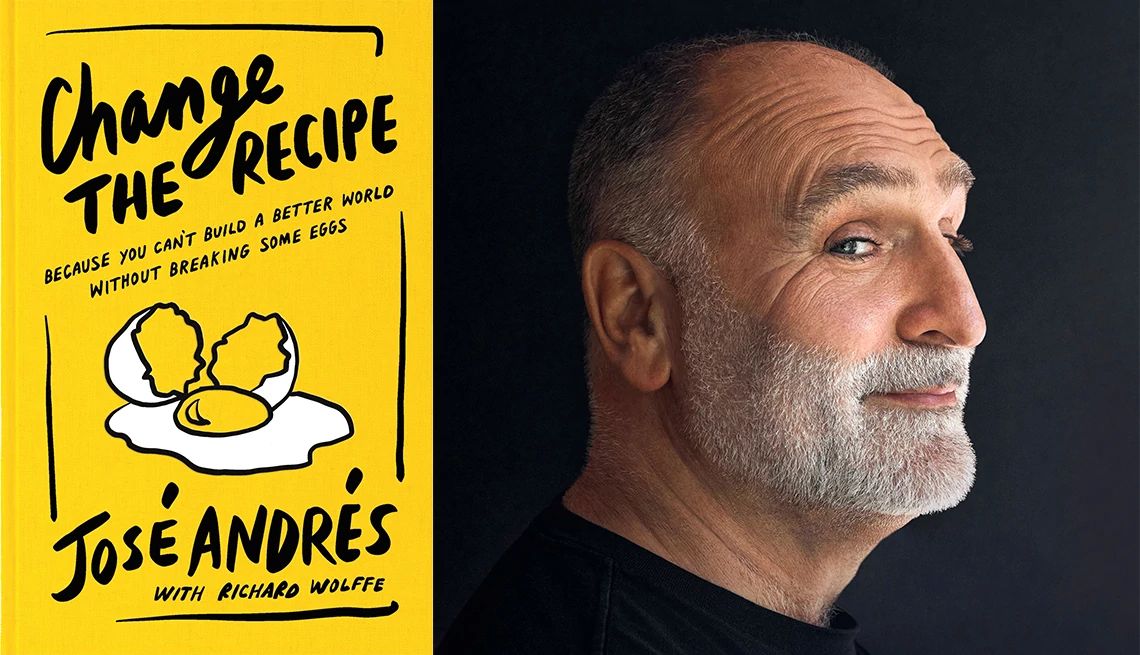
Book excerpt: how chef josé andrés learned to ‘change the recipe’ in haiti and beyond | members only
- Select a language for the TTS:
- UK English Female
- UK English Male
- US English Female
- US English Male
- Australian Female
- Australian Male
- Language selected: (auto detect) - EN
Play all audios:

The city was still very dark at night. Nobody was out and a lot of people were in refugee camps. There was a shelter outside of Port-au-Prince, roughly 250 people, where I met a group of
women who were cooking for their community. We joined them for a day, planning to make some black beans and rice, comforting food. Some of the women in the camp were helping me, cutting
onions, peeling potatoes. I spoke some French, but they spoke Kreyòl, and they didn’t speak Spanish or English. Still, I could understand something from the way they were looking at me, with
a smile, almost a laugh. I started to see what they were telling me with their faces. While they appreciated me making meals for them, those beans I was cooking were not the way they liked
to eat them. I was surprised and maybe a little upset. I thought, _I’m making the best beans in the world! _After all, I’m José Andrés. I had a TV show in Spain and America. I have many
restaurants. But I listened to those women. When I finally understood, I put the tools in their hands and indicated, _Show me how you like to eat the beans._ We gathered burlap sacks and
used them to sieve the black beans, pushing them through the sacks slowly, with muscle, to make sure that what was coming out on the other side was a smooth, creamy purée. A sauce! I finally
saw it, this _sòs pwa nwa_, a black bean sauce to be eaten next to steamed white rice. It ended up so beautiful and rich and velvety, this perfect texture that I had never seen before from
beans. In a way they were showing me a path of what World Central Kitchen should be doing. To this day, when we go away to faraway places, we make sure we give people what they want to eat.
It’s smarter to use the ingredients you have on hand, often local and seasonal ones, prepared by local cooks who make the dishes they know best. We need to be able to respond to events that
disturb the lives of people by helping them rebuild their lives. Since that day, World Central Kitchen was created as an organization that listens. When we go into a community, we never tell
them, _This is what you need to eat; this is what you want_. Instead, we come to learn from them, to collaborate on making meals that are comforting and familiar to everyone there.
